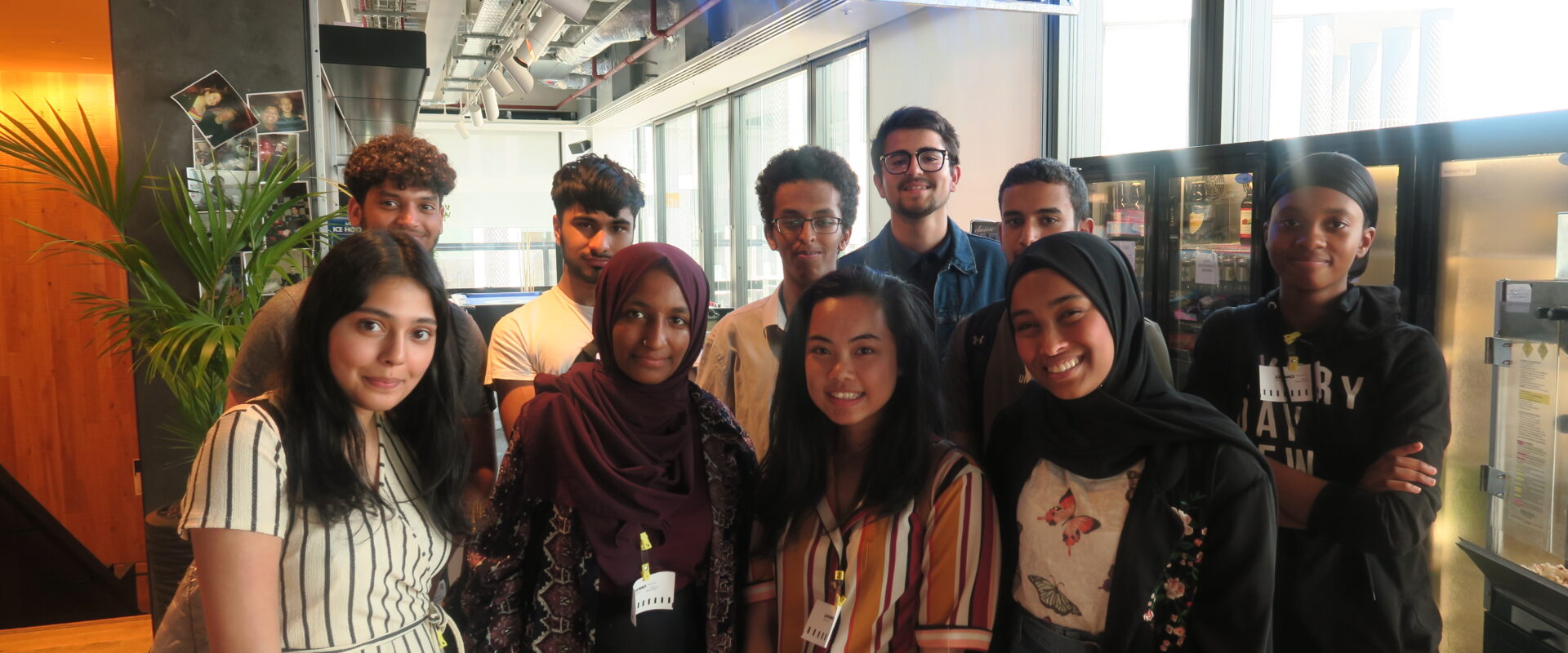In2scienceUK aims to widen participation and increase diversity in STEM among disadvantaged and underrepresented young people in the West Midlands.
Birmingham – In2scienceUK, a charity that promotes diversity and inclusion within the science, technology, engineering and math (STEM) sector, announces a partnership with the University of Birmingham to support disadvantaged local Year 12 students into work placements across the university’s STEM departments.
In2scienceUK and the University of Birmingham will collaborate to address the significant shortfall in the number of young people from disadvantaged backgrounds in the West Midlands progressing onto higher education and STEM careers.
The West Midlands represents a region with high poverty with 18.7 percent of secondary school students receiving a free school meal1, the fourth highest region in England. Meanwhile, Birmingham has the third highest income deprivation score of all English metropolitan boroughs2.
Forming part of the charity’s year-long high-impact programme, young people will be assigned work placements with volunteer science and engineering professionals and researchers at the University of Birmingham. This will provide them with first-hand experience of STEM careers and equip them with vital employability skills.
Young people taking part in the In2scienceUK programme work with STEM professionals at the cutting edge of scientific research. Furthermore, they also experience high quality workshops, participate in public engagement competitions and receive guidance on university applications to inspire them towards careers in STEM. In2scienceUK has already supported over 1,000 students from 326 schools, with 80% going on to be accepted into university.
The University of Birmingham joins a network of prominent supporting partners of the charity, including the Royal Society, University College London, Nesta, Roche Pharmaceuticals, DeepMind, Science Museum and New Scientist magazine.
Dr Rebecca McKelvey, CEO & Founder of In2ScienceUK commented: “The social background of bright young students should never act as a barrier to their progression into university and high skilled STEM careers. There is an enormous amount of untapped potential among disadvantaged young people who often remain overlooked, but who could hold the key to addressing the current shortfall in STEM-skilled workers within the UK. We are on a mission to address this by creating new routes for them to have the same opportunities to enter the best institutions in the country.”
“Our partnership with the University of Birmingham is a fantastic opportunity to open up access and widen participation in STEM from students in the region. The benefits will be felt widely, providing a much-needed boost to social mobility, while tackling the wider shortfall in STEM talent across the UK.”
Dr Clare Ray, College of Medical and Dental Sciences lead for Outreach and Widening Participation at the University of Birmingham, said:
“We are really delighted to be partnering with In2ScienceUK to give our academics and post-graduate students in STEM subjects at the University of Birmingham the opportunity to provide placements for students living in the West Midlands. We are hoping that the placements will inspire and support students currently underrepresented in higher education to consider pursuing study and careers in these important areas for the development of our region and the whole country. They will see first-hand the research being carried out at the University of Birmingham that will lead to the discoveries and developments in science, technology, engineering and mathematics which are likely to influence their own lives in the future.”
The partnership supports In2ScienceUK’s plans to widen accessibility and participation across the UK, having already established programmes in other regions, including London, the South East, the South West, the East of England and most recently the West Midlands and North West.
For more information, interview requests, photography or assets please contact:
- According to data from LG Inform, provided by the Local Government Association.
- The income deprivation score is a measure of the proportion of the population experiencing income-related deprivation and is calculated by the Local Government Association (LGA). LGA figures give Birmingham an income deprivation score of 0.222, the third highest of all English metropolitan boroughs.
About In2ScienceUK
In2ScienceUK is a charitable organisation which supports young people from low-income backgrounds to achieve their potential and progress to apprenticeships, degrees and careers in the STEM sector. The work conducted by In2scienceUK addresses the annual shortfall of 40,000 STEM-skilled workers in the UK today.
The charity was founded in 2010 by Dr Rebecca McKelvey, previously Head of Science at an East London school, who was inspired to take action to address the low participation and lack of opportunities for young people from poor backgrounds when pursuing their interest in STEM subjects.
The In2scienceUK programme comprises a four-part programme which enables young people to work alongside STEM professionals in research labs and industry. Young people also participate in workshops and skills days, gaining the experience and skills they need to progress within STEM careers with confidence. Participating young people have an increased likelihood of pursuing Higher Education and a career in STEM than their peers from the same demographic group.
To date, the charity has supported over 1,000 students from 326 schools; over 80% of whom are now enrolled at a leading HE institution. In the next three years, the charity plans to expand nationally to enable more young people from low income backgrounds to reach their potential in STEM.
Supporting partners of the charity have included The Royal Society, University College London, Nesta, Roche Pharmaceuticals, Oxford Neuroscience, Department for Digital, Culture Media & Sport, DeepMind, The Manly Trust and New Scientist magazine. Follow In2ScienceUK on Twitter, LinkedIn or Instagram.
